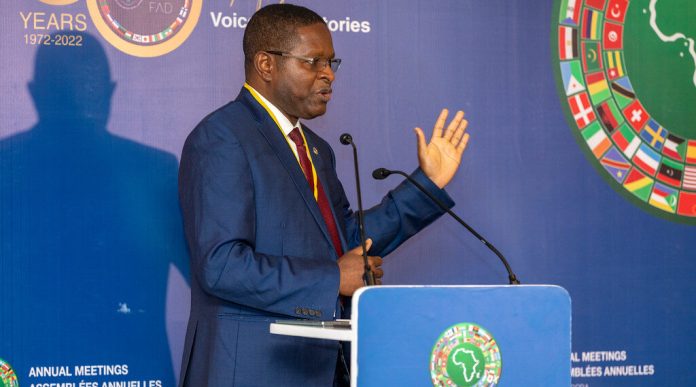The African Development Bank (AfDB) reports that African nations will require $74 billion in 2024 to meet their debt servicing obligations. Prof. Kevin Urama, AfDB’s Chief Economist and Vice President for Economic Governance and Knowledge Management, makes this known during the launch of the Debt Management Forum for Africa (DeMFA) in Abuja on Monday.
The forum, themed “Making Debt Work for Africa: Policies, Practices, and Options,” highlights the escalating debt burden across the continent. Urama explains that Africa’s debt servicing costs have surged from $17 billion in 2010 to $74 billion in 2024, with $40 billion—representing 54% of the total—owed to private creditors.
Urama warns that the actual figure may rise further due to hidden debts and contingent liabilities. He states that 20 African nations are already experiencing debt distress or face a high risk of default. Refinancing risks, he adds, are expected to grow for countries with large bullet repayments due.
Urama highlights the disparity between developed and developing countries in handling debt. While developed economies manage high debt levels with minimal servicing costs, many African countries are dedicating a significant portion of their resources to repay debt, limiting funds for development.
He criticizes the slow pace of debt relief and restructuring measures, arguing that they fail to address the root causes of Africa’s debt issues. Urama also notes that Africa faces persistent liquidity challenges, with refinancing needs expected to average $10 billion annually between 2025 and 2033. He adds that African Eurobond yields reached 15% in 2023, more than double the 2019 rate, making refinancing efforts increasingly difficult.
Urama underscores the financial inequalities African nations face, noting that the continent incurs excessively high borrowing costs despite relatively low default risks. He cites data estimating that Africa pays an annual “Africa Risk Premium” of $24 billion in excess interest due to unfair global risk perceptions.
“These excess costs deprive Africa of resources that are essential for sustainable development,” he states, calling for homegrown solutions to address the debt crisis. Urama advocates for smarter borrowing strategies that prioritize investments in productive sectors to strengthen economic resilience.
Ms. Allison Holland, Assistant Director in the Strategy, Policy, and Review Department at the International Monetary Fund (IMF), stresses the importance of tackling private-sector debt first. She explains that IMF interventions often depend on private creditors engaging proactively.
“If private-sector debts are not resolved, IMF support remains limited. Official creditors play a critical role in this process,” Holland adds.
Dr. Anthony Simpasa, Director of AfDB’s Macroeconomic Policy, Forecasting, and Research Department, attributes the increasing debt levels to climate-related shocks. He explains that many African countries borrow heavily to finance climate adaptation and mitigation projects, which dominate the continent’s climate financing needs.
The forum emphasizes the urgent need for strategic policies, improved debt management practices, and innovative, Africa-led solutions to address the continent’s growing debt burden while ensuring sustainable economic growth.













